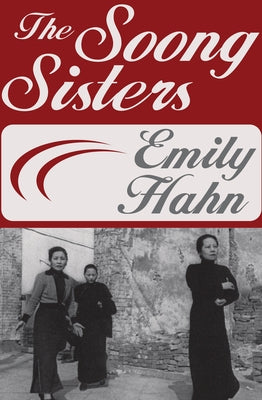Description
"If the story of the Soong family were told as fiction, people would say it was fascinating but too improbable. . . . A dramatic human chronicle . . . engrossing." --The New York Times Book Review In the early twentieth century, few women in China were to prove so important to the rise of Chinese nationalism and liberation from tradition as the three extraordinary Soong sisters--Eling, Chingling and Mayling--who would each marry historic figures. Told with wit and verve by New Yorker correspondent Emily Hahn, a remarkable woman in her own right, the biography of the Soong sisters reveals the story of China through both World Wars. It also chronicles the changes to Shanghai as they relate to a very eccentric family that had the courage to speak out against the ruling regime. Greatly influencing the history of modern China, they interacted with their government and military to protect the lives of those who could not be heard, and appealed to the West to support China during the Japanese invasion. "[A] first-rate reportorial job on three distinguished women." --Kirkus Reviews "A spirited, well-informed book . . . a fascinating saga . . . Hahn skillfully interweaves the personal material which she has collected in abundance with some indispensable background knowledge of Chinese history." --The Atlantic
Author: Emily Hahn
Publisher: Open Road Media
Published: 09/23/2014
Pages: 320
Binding Type: Paperback
Weight: 0.89lbs
Size: 8.50h x 5.50w x 0.71d
ISBN13: 9781497648708
ISBN10: 149764870X
BISAC Categories:
- History | Asia | China
- Biography & Autobiography | Historical
- Biography & Autobiography | Personal Memoirs
Author: Emily Hahn
Publisher: Open Road Media
Published: 09/23/2014
Pages: 320
Binding Type: Paperback
Weight: 0.89lbs
Size: 8.50h x 5.50w x 0.71d
ISBN13: 9781497648708
ISBN10: 149764870X
BISAC Categories:
- History | Asia | China
- Biography & Autobiography | Historical
- Biography & Autobiography | Personal Memoirs
About the Author
A revolutionary woman for her time and an enormously creative writer, Emily Hahn broke all of the rules of the 1920s, including by traveling the country dressed as a boy, working for the Red Cross in Belgium, being the concubine to a Shanghai poet, using opium, and having a child out of wedlock. Hahn kept on fighting against the stereotype of female docility that characterized the Victorian era and was an advocate for the environment until her death at age ninety-two.

